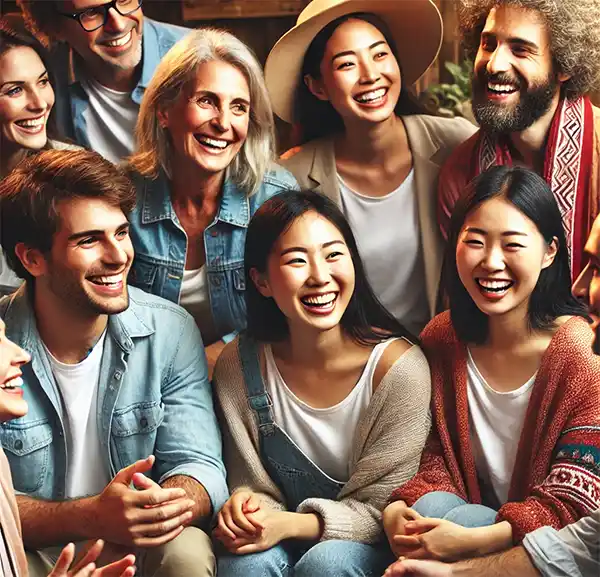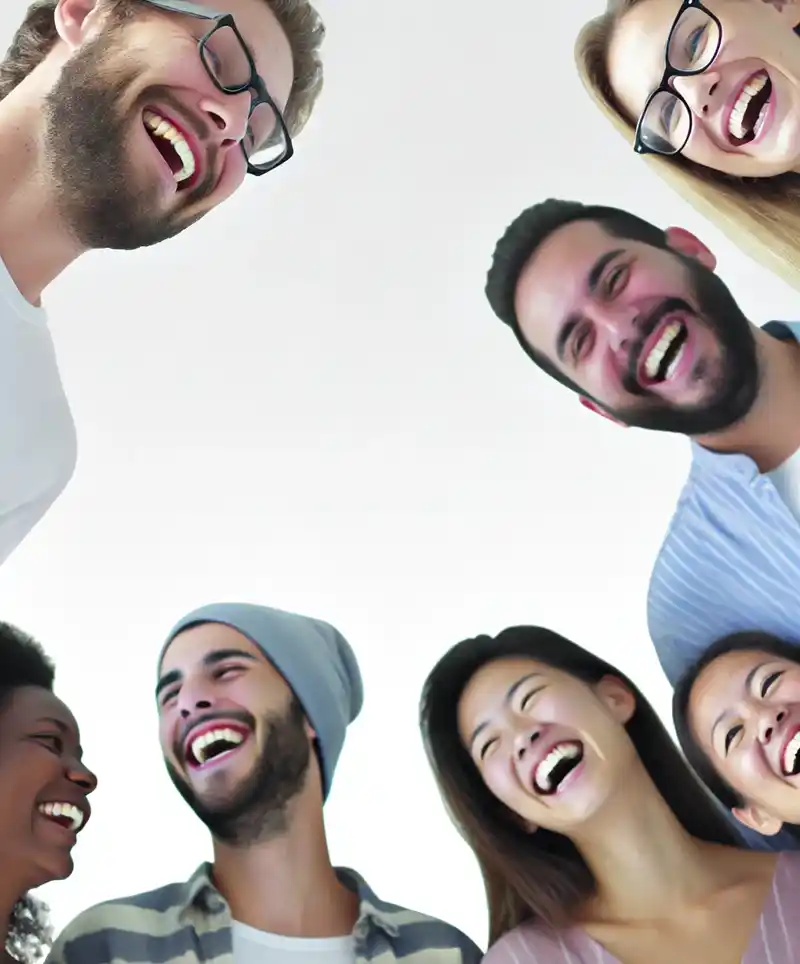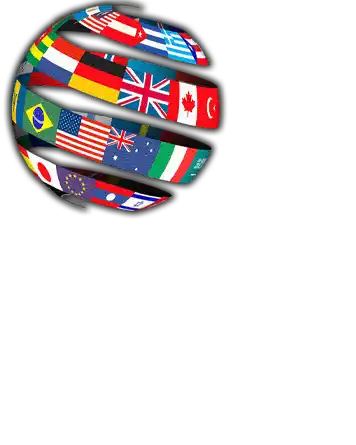Why Celebrating Differences Strengthens Us All
October 12th marks the Day of Respect for Cultural Diversity, a day dedicated to acknowledging the richness and variety of human cultures and the need for mutual respect in our increasingly interconnected world. With more cultures and traditions meeting and blending than ever before, it’s crucial that we learn to appreciate and respect the diversity that surrounds us. Not only does this build stronger, more harmonious communities, but it also enriches our own lives with new perspectives, ideas, and experiences.
Understanding Cultural Diversity
Cultural diversity refers to the presence of multiple cultures within a society. It encompasses differences in language, religion, traditions, values, and social customs, among many other aspects of life. Every group of people, no matter where they are from, has its own unique history and way of interpreting the world, and this cultural identity shapes not only individuals but entire communities.
In today’s globalized world, cultural diversity is a reality in nearly every country. As people migrate, travel, and communicate across borders, societies become a vibrant mosaic of cultures coexisting. The Day of Respect for Cultural Diversity invites us to celebrate this blend while also promoting the respect and understanding necessary to live peacefully together.
The Importance of Respect for Cultural Diversity
At its core, respect for cultural diversity means recognizing the value of different cultures and treating them with dignity. Respecting cultural diversity is more than simply tolerating differences; it’s about actively engaging with and appreciating those differences, realizing that no one culture holds all the answers. By opening ourselves up to new customs, languages, and traditions, we learn from each other, grow in understanding, and deepen our empathy.
 But the need for respect goes beyond just being polite. When cultural diversity is not respected, the results can be exclusion, inequality, and even conflict. History is filled with examples of cultural misunderstandings that led to prejudice, violence, and the marginalization of entire groups. Today, issues like racism, xenophobia, and cultural appropriation persist in various forms, reminding us of the work still to be done in creating truly inclusive societies.
But the need for respect goes beyond just being polite. When cultural diversity is not respected, the results can be exclusion, inequality, and even conflict. History is filled with examples of cultural misunderstandings that led to prejudice, violence, and the marginalization of entire groups. Today, issues like racism, xenophobia, and cultural appropriation persist in various forms, reminding us of the work still to be done in creating truly inclusive societies.
Benefits of Cultural Diversity
Cultural diversity isn’t just something we should respect—it’s something we should embrace because of the many benefits it brings to individuals and societies alike.
1. Broader Perspectives: Interacting with people from different cultural backgrounds exposes us to new ways of thinking and problem-solving. A diverse group of people brings a variety of viewpoints to the table, encouraging creative solutions and innovation. Studies show that culturally diverse teams perform better and are more adaptable to change.
2. Fostering Empathy and Understanding: Exposure to different cultures fosters empathy. When we learn about other traditions, values, and histories, we begin to see the world through others' eyes. This can help break down stereotypes and prejudices that often arise from ignorance. Empathy leads to stronger relationships, both in personal and professional contexts.
3. Economic and Social Strength: Cultural diversity contributes to economic growth by driving creativity and innovation in businesses. Companies that embrace diversity are often more successful because they can appeal to a broader customer base, better understand global markets, and foster a more dynamic workplace environment.
Socially, communities that value diversity tend to be more inclusive, which promotes greater social cohesion. People feel a stronger sense of belonging in places where their identities are respected and valued.
4. Enriching Personal Experience: On a more personal level, cultural diversity enriches our daily lives. From trying new foods and learning new languages to experiencing different forms of art and music, engaging with other cultures broadens our horizons. It encourages curiosity and lifelong learning, making life more interesting and fulfilling.
Challenges to Cultural Diversity
While cultural diversity brings many benefits, it also comes with challenges. Miscommunication, cultural misunderstandings, and bias can make interactions difficult if people are not open-minded or willing to learn. Here are a few common challenges:
-
Stereotypes and Prejudice: Cultural differences can sometimes lead to the formation of stereotypes, where individuals make broad assumptions about others based on their race, ethnicity, or nationality. These assumptions are often inaccurate and harmful, fostering division rather than understanding.
-
Language Barriers: Language differences can create significant obstacles to effective communication. Misunderstandings due to language barriers can lead to frustration and exclusion, particularly in work environments or social settings.
-
Integration vs. Assimilation: There’s often tension between preserving cultural identity and integrating into a broader society. The challenge is finding a balance where people can maintain their cultural heritage while participating fully in the community. Too much pressure to assimilate can lead to the erasure of important cultural traditions.
-
Cultural Appropriation: This occurs when elements of one culture are adopted by another, often without proper understanding or respect. While cultural exchange can be a positive experience, appropriation involves taking cultural symbols or practices out of context in ways that can be offensive or disrespectful.
Ways to Promote Respect for Cultural Diversity
So, how can we actively promote respect for cultural diversity in our daily lives? Here are a few practical approaches:
1. Educate Yourself: One of the most effective ways to develop respect for cultural diversity is to educate yourself about different cultures. Read books, watch documentaries, attend cultural festivals, or simply converse with people from different backgrounds. Understanding the history, values, and struggles of other cultures fosters empathy and appreciation.
2. Challenge Your Biases: Everyone carries unconscious biases, shaped by the environment and culture we grew up in. Acknowledging these biases and actively working to challenge them is a crucial step in building a more inclusive mindset. When you catch yourself making assumptions, pause and reflect on where those assumptions are coming from and whether they’re fair or accurate.
3. Encourage Open Dialogue: Fostering a culture of open dialogue is essential to creating environments where everyone feels heard and respected. Whether at work, school, or in your community, encourage discussions about cultural diversity and listen to others' experiences. Creating spaces for open dialogue can help dispel myths and bridge gaps of misunderstanding.
4. Respect Cultural Practices: Respect for cultural diversity means appreciating that different cultures may have customs, traditions, and practices that are unfamiliar or seem strange to us. Rather than judging or dismissing these practices, approach them with curiosity and respect. Whether it's observing religious customs, honoring traditional dress, or recognizing different holiday celebrations, respect goes a long way in building harmonious relationships.
A Shared Responsibility
Respect for cultural diversity is not just a local issue—it’s a global responsibility. In an increasingly interconnected world, where migration and travel are common, people from different cultures live and work together more than ever before. How we navigate these interactions has significant implications for global peace, stability, and cooperation.
International organizations like UNESCO advocate for cultural diversity as a key factor in promoting peace and sustainable development. By fostering mutual respect and dialogue between cultures, we create stronger, more cohesive societies where everyone has the opportunity to thrive.
On the Day of Respect for Cultural Diversity, we are reminded that our world is a patchwork of different languages, traditions, and histories—and that’s something worth celebrating. By showing respect for the cultural diversity that surrounds us, we not only honor the rich heritage of others but also strengthen the bonds that unite us as a global community.
In the words of the late American civil rights leader, Dr. Martin Luther King Jr., “We may have all come on different ships, but we’re in the same boat now.” Let’s make that boat a place of mutual respect, learning, and celebration of our shared humanity.
Please Share our Content






 But the need for respect goes beyond just being polite. When cultural diversity is not respected, the results can be exclusion, inequality, and even conflict. History is filled with examples of cultural misunderstandings that led to prejudice, violence, and the marginalization of entire groups. Today, issues like racism, xenophobia, and cultural appropriation persist in various forms, reminding us of the work still to be done in creating truly inclusive societies.
But the need for respect goes beyond just being polite. When cultural diversity is not respected, the results can be exclusion, inequality, and even conflict. History is filled with examples of cultural misunderstandings that led to prejudice, violence, and the marginalization of entire groups. Today, issues like racism, xenophobia, and cultural appropriation persist in various forms, reminding us of the work still to be done in creating truly inclusive societies.








 "Sláinte!" is a traditional Irish expression used as a toast, equivalent to "Cheers!" in English.
"Sláinte!" is a traditional Irish expression used as a toast, equivalent to "Cheers!" in English.